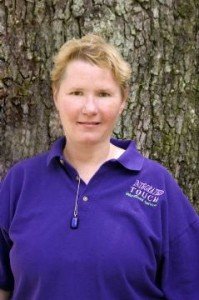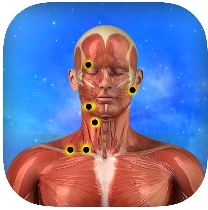
I live and work in Ocala, Florida and I operate my massage establishment from my home. I am also a continuing education provider, which I also operate from my residence. I am currently a sole practitioner, specializing in medical massage.
I treat medically fragile people, chronic pain sufferers, and injuries/joint replacements. In the past, I have had a larger, multi therapist practice with 3 treatment rooms, a large classroom and a staff of 10. My patients are long-term with many of them in treatment for 10+ years.
2. Tell us why you chose to go into massage and at what point in your life did you decide to do so? What were you doing at the time? Where did you first hear about the massage career? What factors influenced your decision? What were you looking to get out of this decision?
I was 35 years old when I enrolled in Seattle Massage School in Everett Washington. I am originally from central Florida and had considered Florida School of Massage when I was younger, but was hesitant because of their reputation.
I found myself in the right place at the right time to enroll in SMS, which was a very medically based program and never looked back. I realized that I could affect a patient’s quality of life in a very big way as a Therapeutic Massage Therapist.
3. What were some of your questions and concerns before further pursuing your massage therapy goals? Talk about concerns with school and the profession itself.
As previously stated, I considered Florida School of Massage which has a reputation for being a very free environment that I did not feel would fit my learning style or give me the skills I was looking for. As for the profession, in 1999 when I went to school, I was not aware of the “red light district” reputation of the profession, but learned about it in school in the history of Massage. Now I work very hard to show a different side of the profession and it’s potential.
4. What is your specialty and what are the top three contributing factors to your success today?
My specialty is Medical Massage with a Neuromuscular approach. Contributing factors in my success I credit are:
- My toolbox is very large. I have many modalities at my disposal and my knowledge inspires confidence in my patients.
- I am fluent in medical ease. I can competently converse with medical professionals as well as my patients. Being able to break things down in a way that anyone can understand what is going on is essential. The patient tends to invest when they understand what caused their problem or disease and how their behavior effects their condition.
- My passion for my patients allows me to use my skills to help them.
5. What do you like about your specialty? What do you like about what you do in general as a career? Why?
I love medical massage because you are dealing with potentially very sick people who you can effect an immediate change and progress their overall situation very quickly. I love the fact that massage allows me to tap into my inner healer and that I can use that gift to help others.
6. What do you not like about what you do? Why?
I dislike that it has to be a profitable business. The business side of Massage/Education is part of what I find frustrating. Insurance billing is a pain, but I believe that if you have insurance that covers your treatment, you should be able to use it. Dealing with health insurance and PIP insurance has cost me a great deal of money and even more stress.
7. If there were three things you could change about your work or the industry as a whole what would they be? Why would you change them? What would you change them to?
1) I would love to see a licensure situation where there are levels of expertise; one category for spa/relaxation and another for treatment. There is currently no distinction in my state at this time.
2) I would love to see stricter requirements for schools. I currently see schools dumping unqualified LMTs into the job market by the thousands and that degrades the profession.
3) I would love to see law enforcement get themselves out of the happy ending seekers role and actually crack down on illegal activity and human trafficking. Where I live, the police are interested in their own release, not law breakers.
8. How long do you plan to practice and what do you plan to do after?
I plan to practice for the rest of my lifetime and I also plan to teach until I can no longer do it. In the 2011 renewal period, we had a practicing Massage Therapist who was 98 years old.
9. Do you currently have another job or business whether full time or part time? Tell us a bit more about it and how you are able to juggle that with your massage career?
I also own a Continuing Education Business for LMTs. I also teach continuing education at the College of Central Florida. Both of my businesses are full time businesses. I find that practicing and teaching massage work well together.
10. What are some mistakes you made in your career pursuit that you’d like to warn other students about so they can learn from your experience and avoid it?
The biggest mistake I have made as a business owner has been hiring other LMTs. I trusted my business to people during a personal family crisis and was shocked to see how many of my dear friends had no qualms about stealing from me, then blaming me for their actions. No one will ever work your business like you would.
11. What would you advice someone who is looking at massage therapy schools? What do you recommend they look for and how? How do you recommend they determine whether the school is the right one for them?
Depending upon the type of practice one might want to set up, the education should be based on that. If they don’t know how they want to practice, then the broadest exposure to all aspects of massage are important. Public schools can be affordable, but you tend to get stuck in classrooms with criminals, or people just riding out a Pell grant and who usually end up burning up a lot of classroom time because they aren’t really serious. Private schools can be very expensive, but you are more likely to be able to settle into a specialty.
12. What do you recommend for someone who wants to go to massage school but cannot afford it?
If your only option is a public school, then go, and make the most of it. Then, continue to build a quality education through wise choices for continuing education.
13. What are your three biggest points of advice for an aspiring massage therapist today? What should they do/not do? What should they think about and consider?
1) Be careful to not get caught up in the feel good stuff at the cost of the things that are more challenging to you. The challenging things usually bring you the most joy.
2) Don’t let your attitude get in the way of getting what you want. A conflict with a teacher or fellow student can derail you, but you can put your head down and get through anything.
3) If you are given a chance to work with an experienced therapist fresh out of school, make the most of it. A lot of therapists are unwilling to teach or share, so when you find someone willing to help you, realize that….and make the most of it.
14. Any open thoughts / comments – anything else that you’d like to share about yourself, the massage industry, profession, future, etc? If nothing, make one prediction for the future of massage?
As a Massage Therapist, I feel I have a unique opportunity to operate within the confines of the medical community alongside Doctors, Nurses, Therapists, Advocates, etc.
15. What is your passion outside of massage? What are your hobbies and interests which you pursue when you are not working? Tell us why you enjoy what you enjoy.
We do animal rescue.
Terri May, LMT, MMT is a graduate of Seattle Massage School. She has been practicing for 14 years, teaching for 3 years at Community Technical Adult Education and is the owner of Integrated Touch Education Services where she provides continuing education to Licensed Masssage Therapists in Florida. You can reach her on her website here.








Leave a Reply